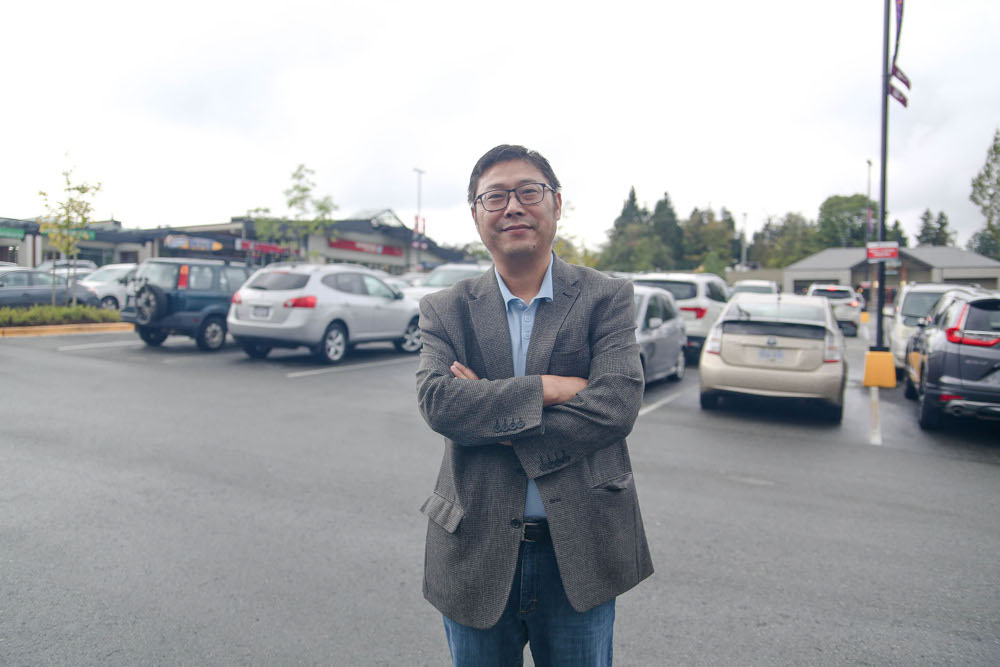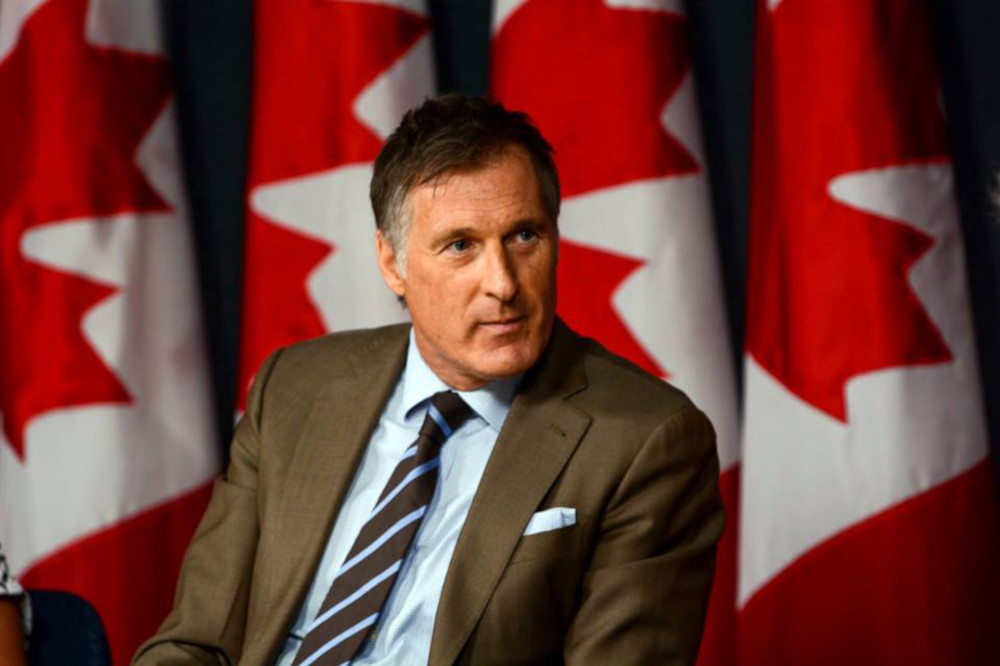The People’s Party of Canada says it is “inclusive,” but how does that square with its calls to scrap the country’s Multiculturalism Act, tighten our borders, promote “Western civilization values” and cut immigration by more than half?
More diversity will “destroy what has made us a great country,” leader Maxime Bernier tweeted last year in a long, Trumpian thread.
Bernier, who narrowly lost the Conservative leadership to Andrew Scheer in 2017, founded the People’s Party in September 2018.
Since then, it has alarmed critics across the political spectrum, including some former supporters who are worried that xenophobic, and even racist, members of the radical right, as seen in the U.S. and Europe, now have a political home in Canada.
“What the PPC is doing risks normalizing far-right ideology,” said Brian Budd, a PhD student in political science at the University of Guelph who researches right-wing politics and populism in Canada.
The party uses the language of inclusion to communicate its ideas, noted Budd.
Those studying far-right parties in Western democracies have found that the most successful ones in Europe use the language of liberalism, civic values, and the national interest as a Trojan horse to normalize discrimination in the mainstream.
The strategy allows such parties to say they’re pursuing national unity when they’re actually promoting exclusion. It allows them to posit that hate speech is actually the free speech of a democratic society.
“It’s a built-in defence against accusations of racism,” said Budd.
It’s the kind of strategy that Conservative Kellie Leitch used in her bid for re-election in 2017. Leitch — who co-announced her party’s controversial “barbaric cultural practices” tip line two years prior — wanted to screen incoming immigrants to “defend Canadian values.”
Bernier used a similar approach in his Twitter rant against diversity, warning that “people live among us who reject basic Western values such as freedom, equality, tolerance and openness.”
While populist right-wing parties, including the People’s Party, have attracted supporters who are white supremacists, Budd doesn’t view the party as all-in advocating for a “homogenous, white European society.”
The party has been quick to point out that it has candidates who are immigrants and people of colour — proof, it has said, that it is not anti-immigrant or racist.
And it is willing to accept newcomers if they “share fundamental Canadian values, learn about our history and culture and integrate in our society,” Bernier has said.
That can be understood as “conditional multiculturalism,” said political scientist Erin Tolley of the University of Toronto.
The party’s immigrant candidates have said that they don’t see a problem with limiting immigration or with Bernier’s view that immigrants must assimilate and take on the party’s definition of “Canadianness.”
Rocky Dong, the party’s candidate in Burnaby North–Seymour, used a metaphor to explain his support for the policies.
“If you have one chopstick, it breaks easily,” he said. “If you have many chopsticks, they’re hard to break.”
Integration is crucial to national unity, said Dong, 48, who arrived in Canada from China in 2001. He helps international students integrate on a daily basis at work, connecting them with housing and education.

Another party candidate, Baljit Singh Bawa of Brampton Centre, who immigrated to Canada from India in 2000, said he was able to integrate thanks to his own drive to improve his English and a three-year stint working in Dubai “to get that international exposure, to get myself out of my comfort zone.” He wants others moving to Canada to integrate in similar ways.
Budd said that immigrant candidates allow the party to showcase its idea of the model minority — “the immigrants who have come in and successfully assimilated without support from the state.”
“A lot of Canadians like to think that Bernier is simply importing something successful from elsewhere,” he said. “But what he’s really doing is trying to adapt ideas and discourses to the Canadian context.”
Having these model immigrant candidates adds a made-in-Canada flavour to the kind of populism Bernier is building; it’s more visibly colourful than whiter movements in other Western democracies.
“It’s about population management,” said Budd, “while ensuring the privilege and supremacy of European culture.”
According to the party’s platform, it seeks to manage newcomer populations by:
-
Cutting immigration to between 100,000 and 150,000 people a year (Last year about 321,000 people immigrated; in the peak year under Stephen Harper, 280,700 arrived in 2010);
-
Focusing on economic immigration to fill labour gaps, while stopping the intake of temporary workers and people entering through family reunification programs;
-
Interviewing newcomers to ensure they subscribe to “Canadian values and societal norms;”
-
Eliminating the Multiculturalism Act and spending on multiculturalism;
-
Stopping “illegal migrants” and “false migrants” entering via the U.S. border;
-
Move to a reliance on private sponsorships to pay for refugee settlement, ending government support.
Bernier describes his vision in the liberal language of “harmony and the maintenance of our Canadian national identity.”
He has also attempted to justify his plans economically for his libertarian supporters, saying the party aims to cut down on state-funded “specialist services” for “freeloaders,” said Budd.
Bernier has said that some cultures, like First Nations, Cape Breton and Quebec’s Eastern Townships “deserve to be nurtured” because they were “developed in Canada” and “don’t exist anywhere else in the world.”
Political scientist Tolley said regional cultures are true of any country. “It is interesting that they’re trying to suggest that these regional cultures can’t exist alongside immigration and multiculturalism,” she said.
The party’s desire to clamp down on immigration and promote “Western civilization values” has led critics, including some former supporters, to accuse it of attracting and harbouring racists, white supremacists, anti-Semites and conspiracy theorists.
People’s Party events have been attended by such far-right individuals as Faith Goldy, an advocate of the conspiracy theory of white genocide who has verbally attacked immigrants and Islamic culture; Paul Fromm, a self-described “white nationalist” based in Hamilton who directs several far-right groups in Canada; and members of the Northern Guard, a militant anti-immigrant, anti-Muslim group that is an offshoot of the Soldiers of Odin.
This has caused trouble with some party supporters.
In July, the entire board of a Winnipeg riding association resigned, saying “racists, bigots, anti-Semites, and conspiracy theorists” had a large presence in the public conversation around the party.
The board members also said they were “appalled” to see “disinformation and distrust... encouraged with wink and a nod now.”
Last week, People’s Party candidate Brian Misera of Coquitlam–Port Coquitlam called on Bernier to “do more to help us disassociate from far-right groups that really have no place in our society.” The party has since revoked Misera’s candidacy, saying that he broke Elections Canada rules by acting as his own financial agent.
Bernier has responded by saying he doesn’t know everyone who attends his rallies and that “people who are racist and [don’t] believe in the Canadian values aren’t welcome in our party.”
Sanjay Jeram, a senior lecturer in political science at Simon Fraser University, believes Bernier’s failure to condemn these far-right elements more strongly is linked to efforts to build the new party.
“My feeling is he’s trying to cobble together a party that’s having trouble with organization,” said Jeram. As an upstart party trying to compete with the Conservatives, Bernier “can’t afford alienating people who he might not want part of the bigger message.”
Jeram said that debate about immigration levels shouldn’t be taboo but cautions against empowering more dangerous anti-immigration constituents. “The party should be more careful to screen candidates who have views that might actually incite violence,” he said.
“In a liberal democratic society, we shouldn’t be limiting debate. But that debate can go into the realm of targeting people for their race, gender, ethnicity or religion and making them vulnerable. It’s possible for people to take those messages and turn them into the legitimization of violence or discrimination.”
Stewart Prest, who also lectures in political science at SFU, said the party’s language is worth scrutiny. For example, it often decries what it calls “radical multiculturalism.”
That “could translate into disliking a particular group, Muslims being singled out,” he said.
Bernier’s attempt to redefine immigration and multiculturalism is a “grand project,” said Prest, as Canada’s mainline parties have agreed for a generation that immigration and multiculturalism are a part of the country’s foundations.
“But these messages can get picked up a number of ways and open the door to even more radical conversations.”
Tolley said that the potential impact of the People’s Party should not be dismissed despite the party’s low support, currently at three per cent, according to the latest CBC aggregate of available polling data.
Tolley gives the example of the Reform Party, also an opponent of multiculturalism, which in the 1990s was able to change the conversation around immigration, making it an economic issue rather than a social one.
Last week the Leaders’ Debates Commission invited Bernier to participate in leadership debates.
Many experts wonder how the People’s Party’s narratives on immigration, refugees and multiculturalism might shift how other parties and the Canadian public talk about these topics.
People’s Party candidate Rocky Dong says they are only preaching “common sense.”
“We don’t hate the people outside. We just love the people inside the fence.” ![]()
Read more: Election 2019, Federal Politics


















Tyee Commenting Guidelines
Comments that violate guidelines risk being deleted, and violations may result in a temporary or permanent user ban. Maintain the spirit of good conversation to stay in the discussion.
*Please note The Tyee is not a forum for spreading misinformation about COVID-19, denying its existence or minimizing its risk to public health.
Do:
Do not: